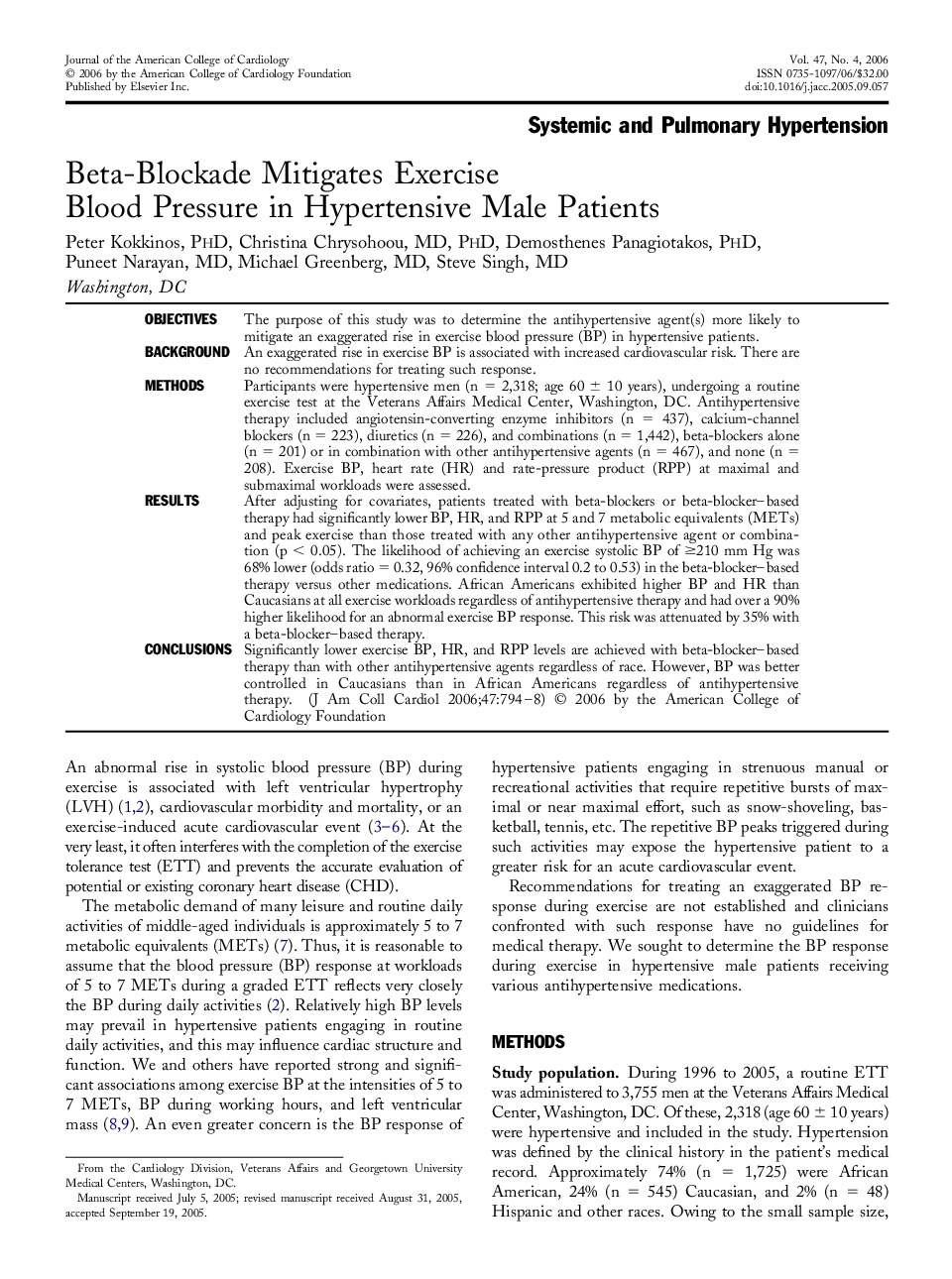| Article ID | Journal | Published Year | Pages | File Type |
|---|---|---|---|---|
| 2952431 | Journal of the American College of Cardiology | 2006 | 5 Pages |
ObjectivesThe purpose of this study was to determine the antihypertensive agent(s) more likely to mitigate an exaggerated rise in exercise blood pressure (BP) in hypertensive patients.BackgroundAn exaggerated rise in exercise BP is associated with increased cardiovascular risk. There are no recommendations for treating such response.MethodsParticipants were hypertensive men (n = 2,318; age 60 ± 10 years), undergoing a routine exercise test at the Veterans Affairs Medical Center, Washington, DC. Antihypertensive therapy included angiotensin-converting enzyme inhibitors (n = 437), calcium-channel blockers (n = 223), diuretics (n = 226), and combinations (n = 1,442), beta-blockers alone (n = 201) or in combination with other antihypertensive agents (n = 467), and none (n = 208). Exercise BP, heart rate (HR) and rate-pressure product (RPP) at maximal and submaximal workloads were assessed.ResultsAfter adjusting for covariates, patients treated with beta-blockers or beta-blocker–based therapy had significantly lower BP, HR, and RPP at 5 and 7 metabolic equivalents (METs) and peak exercise than those treated with any other antihypertensive agent or combination (p < 0.05). The likelihood of achieving an exercise systolic BP of ≥210 mm Hg was 68% lower (odds ratio = 0.32, 96% confidence interval 0.2 to 0.53) in the beta-blocker–based therapy versus other medications. African Americans exhibited higher BP and HR than Caucasians at all exercise workloads regardless of antihypertensive therapy and had over a 90% higher likelihood for an abnormal exercise BP response. This risk was attenuated by 35% with a beta-blocker–based therapy.ConclusionsSignificantly lower exercise BP, HR, and RPP levels are achieved with beta-blocker–based therapy than with other antihypertensive agents regardless of race. However, BP was better controlled in Caucasians than in African Americans regardless of antihypertensive therapy.
